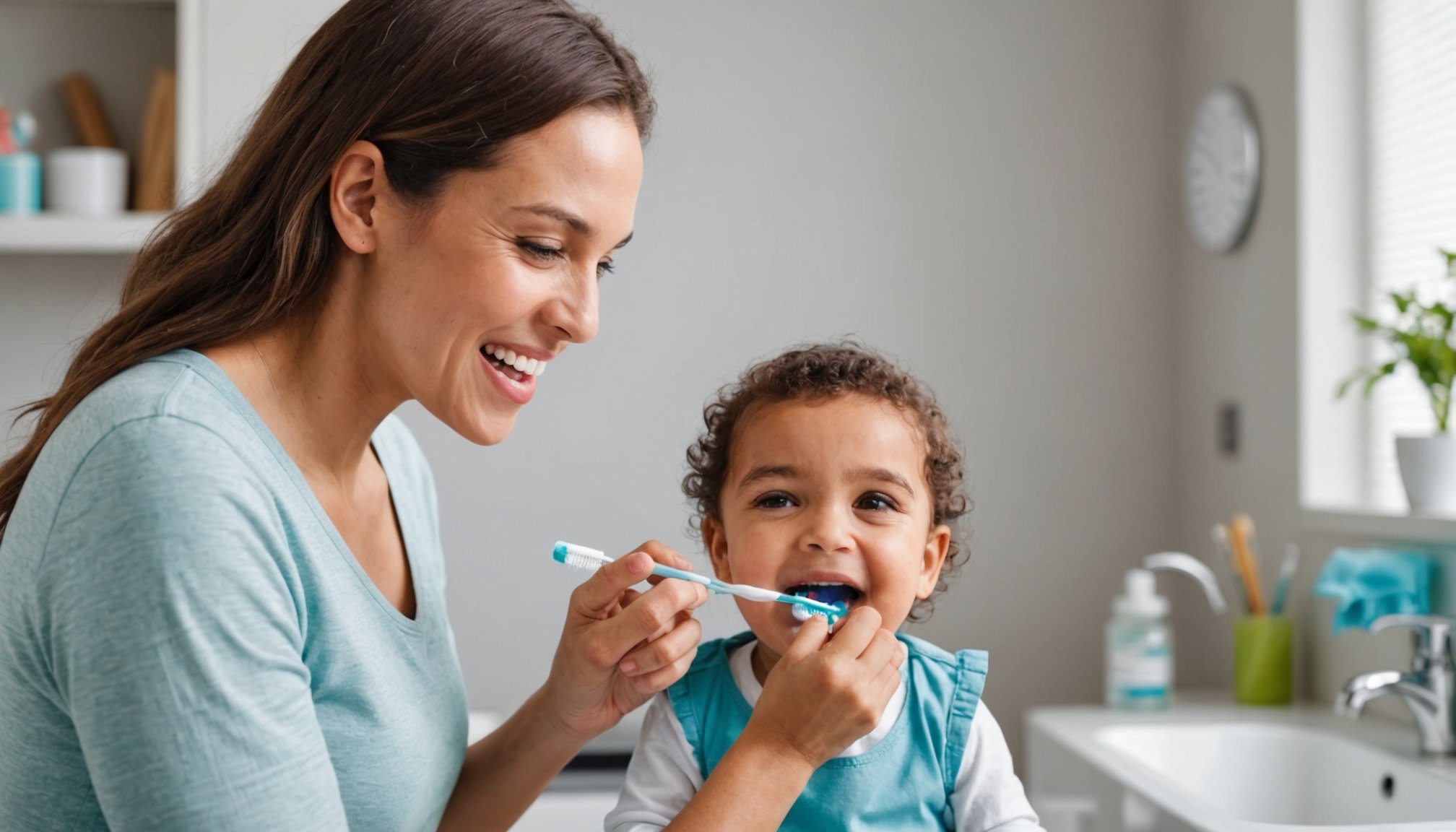Importance of Oral Hygiene During Pregnancy
During pregnancy, oral health plays a vital role in ensuring both the mother’s and baby’s well-being. Hormonal changes can significantly affect dental health, increasing the risk of issues like gum disease. As levels of estrogen and progesterone rise, they can lead to an increased blood flow to the gums, causing swelling and bleeding, a condition known as pregnancy gingivitis. Taking proactive steps in pregnancy dental care helps mitigate these effects.
Neglecting oral hygiene during pregnancy can pose risks such as preterm birth or low birth weight. Research suggests a potential link between poor oral health and adverse pregnancy outcomes. As such, maintaining a consistent dental care routine becomes crucial.
Topic to read : Discover the Latest Research: How Prenatal Music Exposure Enhances Developmental Benefits for Babies in the UK
Preventing gum disease during pregnancy is of utmost importance. Staying informed about one’s dental health can significantly impact overall pregnancy health outcomes. By adhering to a regular dental care routine and seeking professional advice, mothers-to-be can safeguard their health and that of their unborn child. Frequent dental check-ups and a proper oral hygiene regimen contribute to a plain-sailing pregnancy journey. Gum disease prevention thus serves as a pivotal element in maintaining optimal health for both the mother and the child.
Common Dental Issues Faced by Pregnant Women
Pregnancy can bring about unique dental challenges due to hormonal fluctuations, placing women at an increased risk for certain oral health problems. One of the most prevalent issues is pregnancy gingivitis, marked by symptoms such as swollen, tender gums that may bleed during brushing or flossing. Hormonal changes increase blood flow to the gums, exacerbating these symptoms and requiring careful attention to routine dental care.
Additional reading : Essential Nutrient Guidelines for Vegan Pregnant Women in the UK: Key Considerations for Optimal Health
Another concern is the heightened risk of tooth decay during pregnancy. Many women experience changes in appetite or indulge in cravings, which may lead to increased sugar consumption; this, coupled with morning sickness, can expose teeth to acidic conditions, weakening enamel. Therefore, maintaining a diligent routine with proper brushing and using fluoride toothpaste is essential.
It is crucial to address and dispel misconceptions about dental care during pregnancy. Some expectant mothers may mistakenly believe that dental visits pose risks; however, with appropriate precautions, dental procedures are generally safe and encouraged to prevent and address oral health issues. Proactively managing pregnancy dental problems not only secures a mother’s health but also supports the overall well-being of the developing baby.
Best Practices for Oral Hygiene
Maintaining optimal oral hygiene is crucial during pregnancy, necessitating a careful dental care routine.
Daily Oral Care Routine
Adhering to a consistent dental care routine can significantly reduce the risk of gum disease and tooth decay in pregnant women. It is vital to use proper brushing and flossing techniques, ensuring that all teeth surfaces and gum lines are thoroughly cleaned. Pregnant women should use toothpaste containing fluoride and rinse with an alcohol-free mouthwash to maintain enamel strength and freshness. Regular dental visits, ideally every trimester, help monitor oral health, allowing for early detection and management of potential issues.
Nutrition and Oral Health
A mother’s diet during pregnancy plays a significant role in oral health. Consuming a balanced diet rich in calcium, vitamin D, and vitamin C can promote strong teeth and gums. Leafy greens, dairy products, and citrus fruits are excellent choices. Staying hydrated is equally important, as it aids in saliva production which helps neutralize harmful acids and wash away food particles. Ensuring a diet with adequate nutrients and proper hydration can enhance oral hygiene and contribute to a healthier pregnancy experience.
Addressing Common Concerns
Pregnancy often raises numerous questions and concerns about dental care. Addressing these can greatly improve a mother’s confidence in managing her oral health.
One common concern involves the safety of dental procedures during pregnancy. Are dental treatments safe? Yes, with appropriate precautions, dental visits are generally safe and recommended. It is crucial for expectant mothers to keep up with routine care to prevent pregnancy dental problems such as gum disease.
Misconceptions often deter pregnant women from seeking necessary dental care. For instance, some believe X-rays should be avoided. However, dental X-rays are considered safe with protective aprons and thyroid collars. It’s important to communicate any concerns with healthcare providers for tailored advice.
Answering frequently asked questions helps dispel myths and alleviates anxiety about dental health during pregnancy. When should I inform my dentist about pregnancy? It’s advisable to inform immediately to guide appropriate care.
Stay informed, and discuss any dental health myths or concerns with a professional. Regular check-ups ensure prompt attention to evolving needs, reinforcing the importance of proactive oral hygiene in this crucial time.
Dental Healthcare Resources in the UK
Navigating available dental care services in the UK during pregnancy is crucial for maintaining oral health. The NHS provides significant support through free dental care for expectant mothers, extending until 12 months post-birth. This ensures women can access essential treatments without financial burden, covering necessary procedures to maintain oral hygiene and prevent gum disease.
Pregnancy-specific dental health programs on the NHS include regular check-ups and advice tailored to the unique needs of pregnant women. These programs focus on preventing common pregnancy dental problems, such as tooth decay and gum disease, linked to hormonal changes.
For those unfamiliar with NHS processes, local health clinics and resources offer guidance and assistance. It’s advisable to choose a dentist specializing in prenatal care. Such dentists are more attuned to understanding the specific concerns and conditions that arise during pregnancy.
Engaging with these resources helps ensure both mother and baby’s health. Seek out recommendations from healthcare providers or community networks to select a dentist focused on pregnancy dental care. Emphasizing communication with healthcare providers allows for a proactive approach to dental resource selection and ensures a well-coordinated care plan throughout this vital period.










